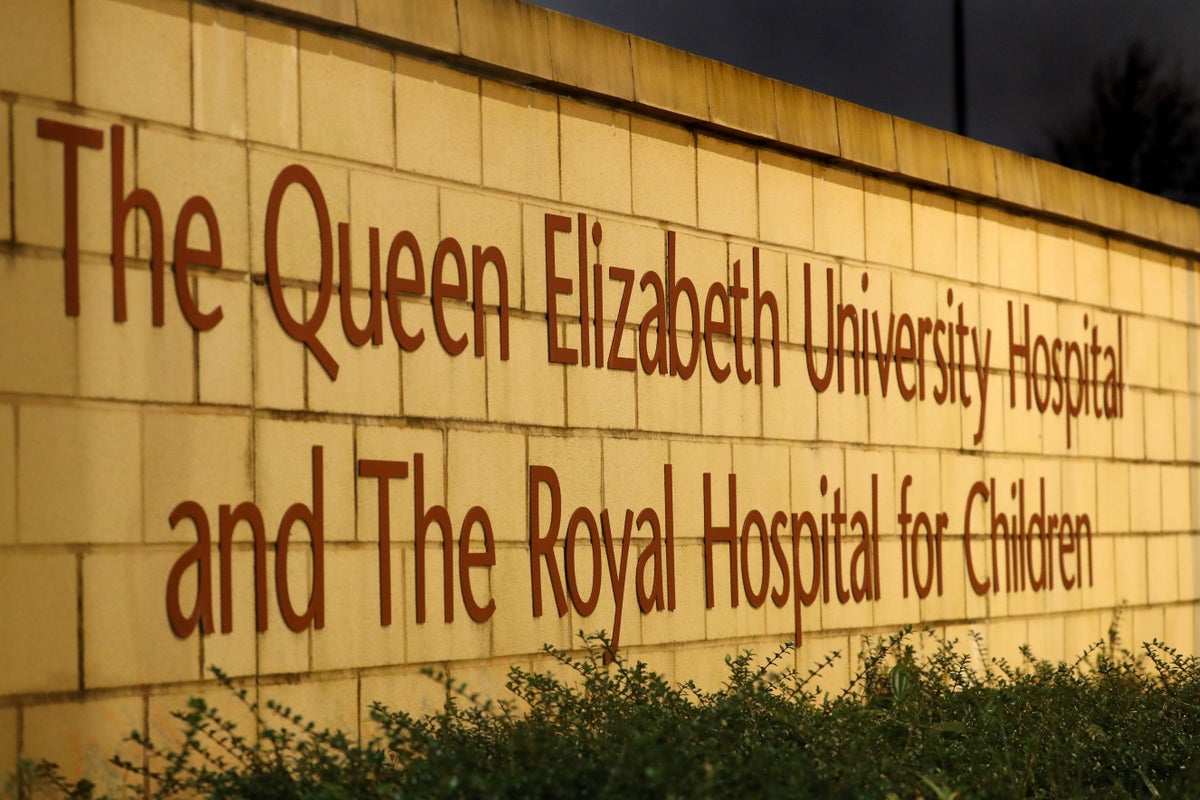
A senior manager at a children’s hospital where water was found to be infected said he would have preferred a more “pro-active” approach to informing families of crucial developments but claimed the culture was “nothing but transparent”, an inquiry has heard.
Jamie Redfern, director of children and women’s services at NHS Greater Glasgow and Clyde health board, gave evidence to the Scottish Hospitals Inquiry on Monday.
Mr Redfern was employed as the general manager of acute paediatrics and neonatology at NHS Greater Glasgow and Clyde in 2018 and was responsible for service delivery during the time children were falling ill throughout 2018.
Senior counsel to the inquiry Alastair Duncan KC asked questions about Mr Redfern’s role, specifically in relation to communication between the health board and affected families.
The inquiry had previously heard from families who learned patients would be moved from the Royal Hospital for Children in Glasgow to the neighbouring Queen Elizabeth University Hospital from media reports.
Personally, from myself, I always felt that everybody spoke truthfully, honestly and articulately as much as they possibly could on the circumstances at that specific time— Jamie Redfern
This was to prevent further infection after it was found the water coming through the taps to ward two, which treats children with cancer and blood-borne diseases, was contaminated.
Families were informed on September 18 that the children would be decanted to the Queen Elizabeth ward but a media briefing took place on September 17, the inquiry heard.
Mr Redfern was asked how the families might have felt upon hearing that information from the media, rather than from the health board.
He said: “Not good. I would much rather have had a pro-active approach (to communicating with families).”
Mr Redfern was also asked about concerns families had about a lack of transparency at the time and there were concerns about the approach to communication.
A statement prepared for the media in September 2018 showed information about patients’ treatment but this did not appear in the same briefing for patients.
Mr Duncan asked: “That was not being said in the handout, at least the one that we looked at, at that time. We are wondering against that background, whether you have any thoughts or regards whether concerns about transparency might be understood?”
Mr Redfern insisted the culture within the organisation was “nothing but transparent” while the issue was ongoing.
He said: “Right through the whole process of every incident management team, as part of this public inquiry into the children’s hospital, I never ever felt that there was a lack of transparency.
“I would never ever have allowed that to happen.
“Personally, from myself, I always felt that everybody spoke truthfully, honestly and articulately as much as they possibly could on the circumstances at that specific time.”
Mr Redfern acknowledged there was “unhappiness” at the circumstances families found themselves in.
The inquiry was launched in the wake of deaths linked to infections at the Queen Elizabeth hospital, including that of 10-year-old Milly Main.
It is also examining problems that led to the delay in the opening of the new Royal Hospital for Children and Young People in Edinburgh.
The children’s hospital in Glasgow opened in 2015 and formed part of the £840 million Queen Elizabeth University Hospital campus, replacing a facility at Yorkhill.
The inquiry, before Lord Brodie, continues.







